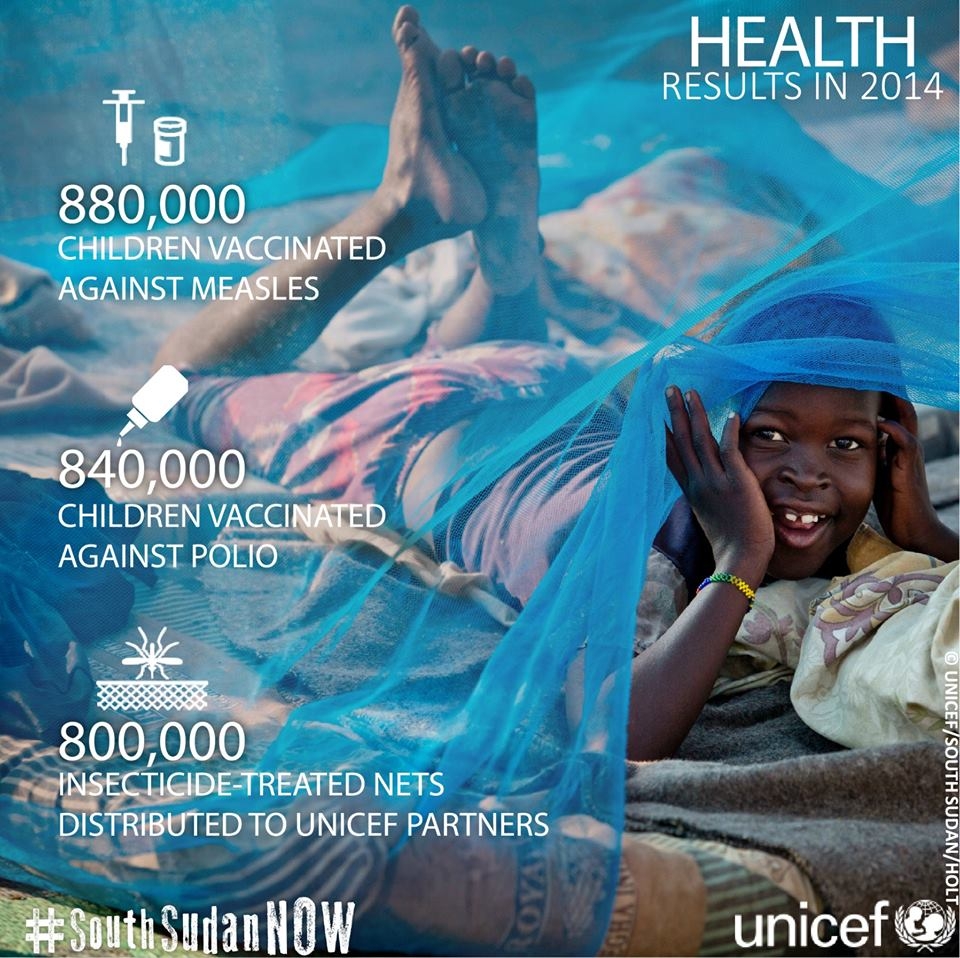Medical charity group Medicines San Frontieres (MSF) says the cost of importing vaccines into the country is too high, which is impacting on the provision of health services.
Speaking to the media, Erline Larsson, the MSF vaccination focal point in Juba, says they are working hard to treat and provide the necessary medicines to communities in need, but large amounts of money are being spent on bringing vaccines into the country.
“I think it is important to realize that vaccine here in South Sudan is imported by the UNICEF on behalf of the government. Of course vaccine prices have a lot, because the more we pay for vaccines the little less we will have for operational costs,” said Larsson.
Larsson said the country needs to strengthen the health systems and improve the transport capacity to reduce the cost of vaccines.
“…we need to strengthen the health systems, we need to improve the health facilities, we need to improve the transport capacity and if we don’t do that the cost of vaccines will be very high..,” said Larsson.
South Sudan has a challenge in providing vaccination especially in areas of conflict where many children haven’t been vaccinated.
Meanwhile, a group of women have come together to provide assistance to people displaced by inter-communal clashes in Kworijik village in Northern Bari Payam, Central Equatoria state.
The women from St. Teresa Catholic Church in Kator and female staff of Kapuki Primary School in Juba handed over 50 bags of maize flour and 10 jerry-cans of cooking oil, equivalent to 8,000 pounds, to communities seeking safety at Juba One Primary School.
They also handed over 1,000 pounds cash for buying clean drinking water that is supplied by commercial tankers in the town.
Mirella Augustino Modi, who led the delegation, told TCT that they decided as women to help their sisters who are in need in the camp.
“We came to visit our sisters today so that we can comfort them and give them little assistance. I brought 50 bags of flour, 10 jerry cans of cooking oil, and five bags of beans and three cartoons of soap and one thousand pounds for water. I collected this money from my office. From my school known as Kapuki, I brought five thousand pounds to help the children here,” she said.
More than four hundred people were displaced by inter-communal clashes in Kowrijik village three weeks ago, and remain camped at Juba One Primary School.
Medical charity group Medicines San Frontieres (MSF) says the cost of importing vaccines into the country is too high, which is impacting on the provision of health services.
Speaking to the media, Erline Larsson, the MSF vaccination focal point in Juba, says they are working hard to treat and provide the necessary medicines to communities in need, but large amounts of money are being spent on bringing vaccines into the country.
“I think it is important to realize that vaccine here in South Sudan is imported by the UNICEF on behalf of the government. Of course vaccine prices have a lot, because the more we pay for vaccines the little less we will have for operational costs,” said Larsson.
Larsson said the country needs to strengthen the health systems and improve the transport capacity to reduce the cost of vaccines.
“…we need to strengthen the health systems, we need to improve the health facilities, we need to improve the transport capacity and if we don’t do that the cost of vaccines will be very high..,” said Larsson.
South Sudan has a challenge in providing vaccination especially in areas of conflict where many children haven’t been vaccinated.
Meanwhile, a group of women have come together to provide assistance to people displaced by inter-communal clashes in Kworijik village in Northern Bari Payam, Central Equatoria state.
The women from St. Teresa Catholic Church in Kator and female staff of Kapuki Primary School in Juba handed over 50 bags of maize flour and 10 jerry-cans of cooking oil, equivalent to 8,000 pounds, to communities seeking safety at Juba One Primary School.
They also handed over 1,000 pounds cash for buying clean drinking water that is supplied by commercial tankers in the town.
Mirella Augustino Modi, who led the delegation, told TCT that they decided as women to help their sisters who are in need in the camp.
“We came to visit our sisters today so that we can comfort them and give them little assistance. I brought 50 bags of flour, 10 jerry cans of cooking oil, and five bags of beans and three cartoons of soap and one thousand pounds for water. I collected this money from my office. From my school known as Kapuki, I brought five thousand pounds to help the children here,” she said.
More than four hundred people were displaced by inter-communal clashes in Kowrijik village three weeks ago, and remain camped at Juba One Primary School.





